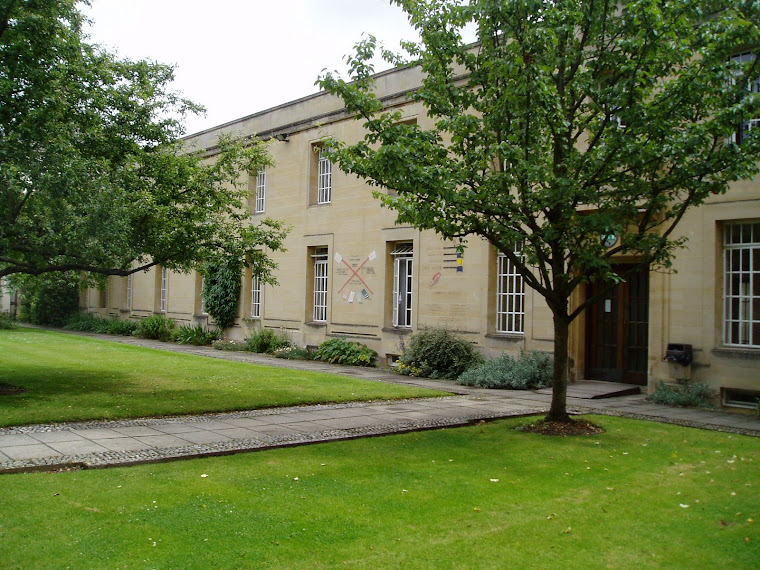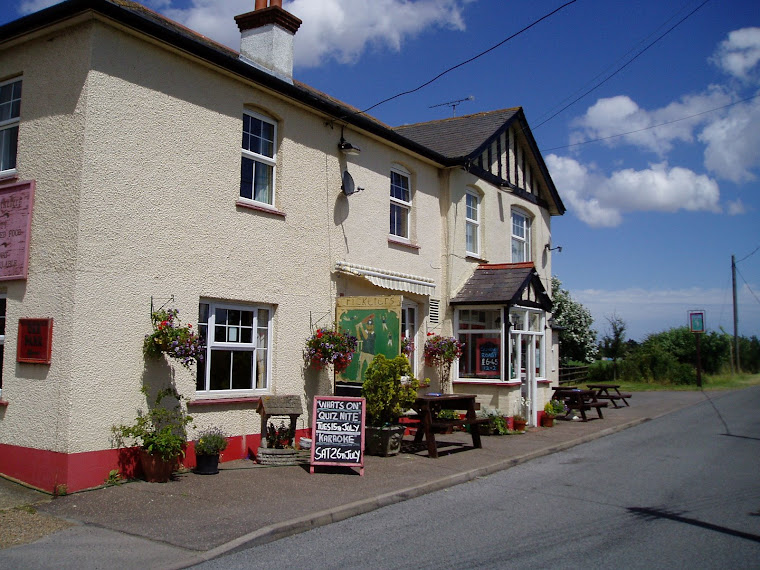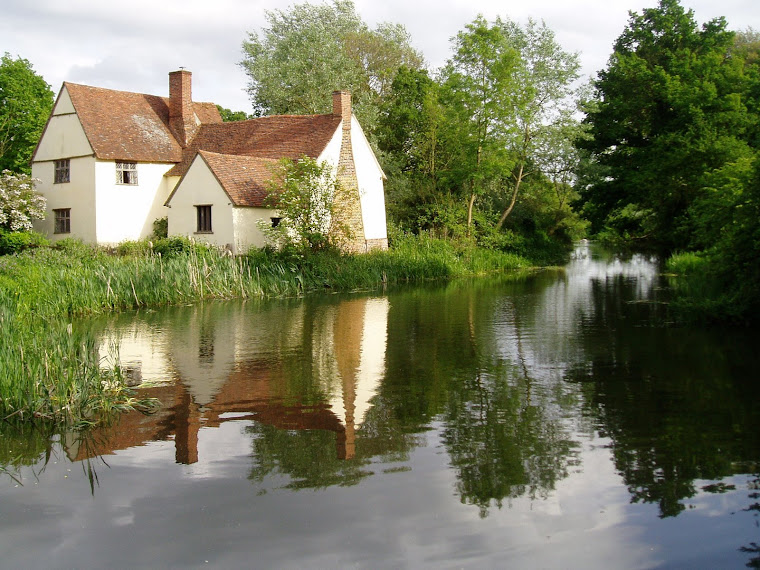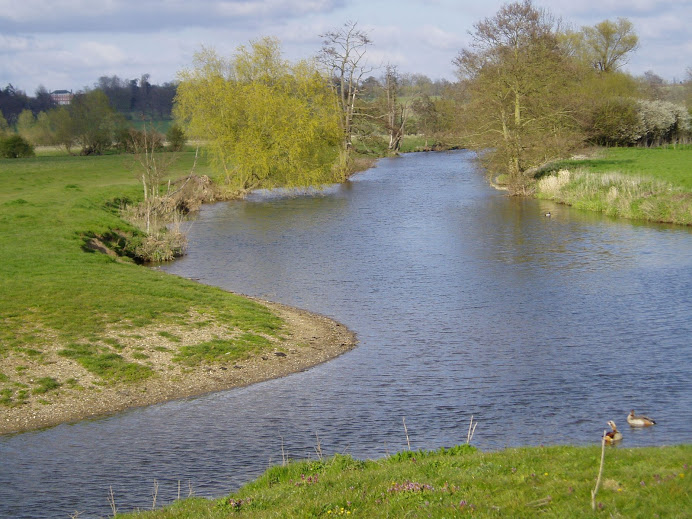My questions about the decline and demise of the Hornchurch Brethren have been on my mind for many years, and I now think that my own and my wife's experiences of the Open Brethren have helped me to understand many of the issues and problems that they faced.
Why were we not attracted to Emerson Park Chapel (EPC), which was so near our home? That is a key question in my mind. EPC was soundly evangelical, evangelistic, biblical, Trinitarian, sacramental in having a high place for believers's baptism and the Lord's Supper (the breaking of bread, the eucharist, Holy Communion), and it had a strong Christian voice in the local community. It had a well attended Sunday school and, as I have mentioned in my previous post, had excellent speakers and guest preachers.
The first reason I did not wish to join it or become involved in the EPC assembly was its anti-charismatic theology and its tendency to believe in a trinity of Father, Son and Holy Scripture.
In the 1970s the charismatic movement was gaining strength and was, in my view, becoming main stream in some Anglican and non-conformist churches. It became deeply embedded in the Evangelical Alliance, in the March for Jesus events, and many house churches. The house church movement had a number of former Brethren leaders who became highly critical of the Open Brethren's resistance to change and particularly its opposition to "charismatic renewal".
I understand that at EPC there was resistance from the eldership to discussing charismata (the gifts of the Spirit) and the work of the Holy Spirit in healing, miracles, signs and wonders. One elder apparently wanted to forbid such discussion completely. One lady, now with the Lord, told me that this was the last straw for her. She and her husband left EPC, and she considered that the assembly had quenched and grieved the Holy Spirit. The seeds of their decline had been sown. One could argue that EPC had pushed the self destruct button at this point.
Another issue was women's ministry, or the place and position of women within the Brethren assembly. The classic Brethren position is that a woman is forbidden to preach, to deliver a sermon.
Some Brethren elders believed that women should remain silent at all times and at all meetings, except for women's meetings of course. At EPH women were allowed to speak if they were missionaries on furlough, singers and musicians, and those under the direction of an elder giving a testimony. It was clear the elders were in charge and in complete authority.
Here we come to the question of authority. The Open Brethren contended that no women had authority over a man, whether it was in the home, in business, and the assembly. Yet I have been told by several people raised in Brethren families that the wives of the elders were shrewd in allowing their husbands to think that they were in control, but in reality these wives often had their husbands doing what these wives wanted, and sometimes the men were "under their thumbs".
In the latter part of the twentieth century daughters of Brethren elders became more highly qualified than their fathers, or at least as qualified academically and through in service training. These women held jobs with responsibility, status and authority. Sometimes in the Civil Service, in commerce, in teaching and academia they outranked the men in the assembly, some of the elders. A capable university lecturer or teacher with a clear ability to communicate would, therefore, be forbidden in Brethren circles to share her knowledge or to teach from the pulpit. Her knowledge, experience and talent would not be permitted to flourish in a Brethren assembly. Consequently such women left the Brethren.
TO BE CONTINUED.
Why were we not attracted to Emerson Park Chapel (EPC), which was so near our home? That is a key question in my mind. EPC was soundly evangelical, evangelistic, biblical, Trinitarian, sacramental in having a high place for believers's baptism and the Lord's Supper (the breaking of bread, the eucharist, Holy Communion), and it had a strong Christian voice in the local community. It had a well attended Sunday school and, as I have mentioned in my previous post, had excellent speakers and guest preachers.
The first reason I did not wish to join it or become involved in the EPC assembly was its anti-charismatic theology and its tendency to believe in a trinity of Father, Son and Holy Scripture.
In the 1970s the charismatic movement was gaining strength and was, in my view, becoming main stream in some Anglican and non-conformist churches. It became deeply embedded in the Evangelical Alliance, in the March for Jesus events, and many house churches. The house church movement had a number of former Brethren leaders who became highly critical of the Open Brethren's resistance to change and particularly its opposition to "charismatic renewal".
I understand that at EPC there was resistance from the eldership to discussing charismata (the gifts of the Spirit) and the work of the Holy Spirit in healing, miracles, signs and wonders. One elder apparently wanted to forbid such discussion completely. One lady, now with the Lord, told me that this was the last straw for her. She and her husband left EPC, and she considered that the assembly had quenched and grieved the Holy Spirit. The seeds of their decline had been sown. One could argue that EPC had pushed the self destruct button at this point.
Another issue was women's ministry, or the place and position of women within the Brethren assembly. The classic Brethren position is that a woman is forbidden to preach, to deliver a sermon.
Some Brethren elders believed that women should remain silent at all times and at all meetings, except for women's meetings of course. At EPH women were allowed to speak if they were missionaries on furlough, singers and musicians, and those under the direction of an elder giving a testimony. It was clear the elders were in charge and in complete authority.
Here we come to the question of authority. The Open Brethren contended that no women had authority over a man, whether it was in the home, in business, and the assembly. Yet I have been told by several people raised in Brethren families that the wives of the elders were shrewd in allowing their husbands to think that they were in control, but in reality these wives often had their husbands doing what these wives wanted, and sometimes the men were "under their thumbs".
In the latter part of the twentieth century daughters of Brethren elders became more highly qualified than their fathers, or at least as qualified academically and through in service training. These women held jobs with responsibility, status and authority. Sometimes in the Civil Service, in commerce, in teaching and academia they outranked the men in the assembly, some of the elders. A capable university lecturer or teacher with a clear ability to communicate would, therefore, be forbidden in Brethren circles to share her knowledge or to teach from the pulpit. Her knowledge, experience and talent would not be permitted to flourish in a Brethren assembly. Consequently such women left the Brethren.
TO BE CONTINUED.


































































































































2 comments:
Some very interesting thoughts, John. Although my father was a staunch Pentecostal, he had links with the Open Brethren, mainly due to being an open-air preacher. He was also a lay preacher with the Peculiar People around the Essex area.
I recall, as a teenager growing up in a Pentecostal Church, hearing the phrase, 'We are geared to the times, but anchored to the Rock'. Perhaps the Brethren were strong on the second point, but very lacking on the first point, and the name 'Brethren' probably gives this away, being long overdue for a rethink.
Over recent years I have tried to put myself in the shoes of outsiders when it comes to matters of church. Having visited the local Anglican Church a few times lately has reinforced to me how strange church services must seem to someone who has had no involvement with religion of any sort. Even more so if we use Elizabethan language, theological language, and adopt a very 'reverential' manner of praying and preaching.
So....., are you feeling called to take action and get things going at Emerson Park again? I may know a few people who are interested to help!!!
John P
Thanks John for your comment. I will talk to you about this matter after the morning service, soon, I hope.
Post a Comment